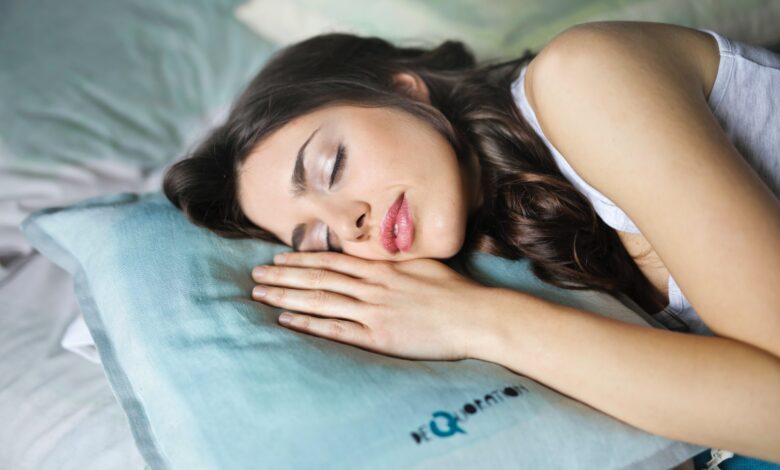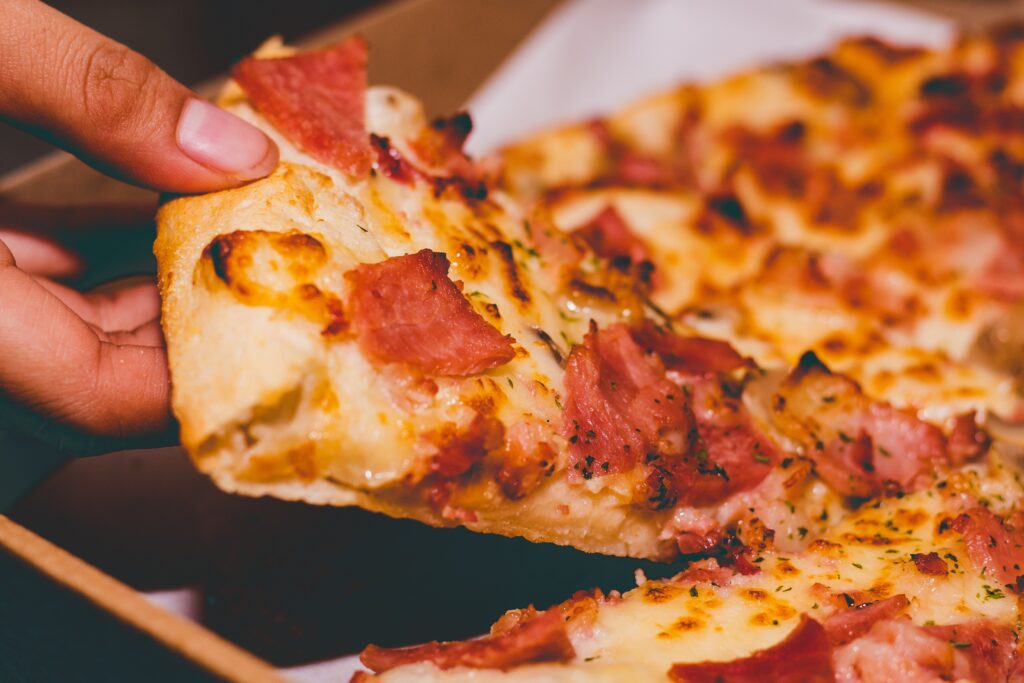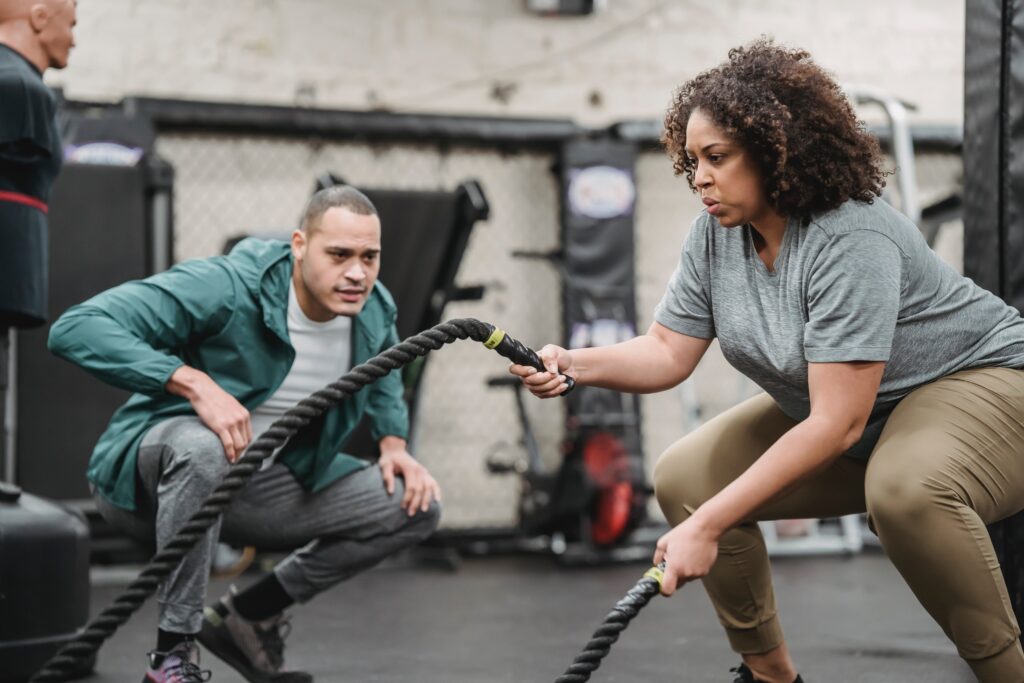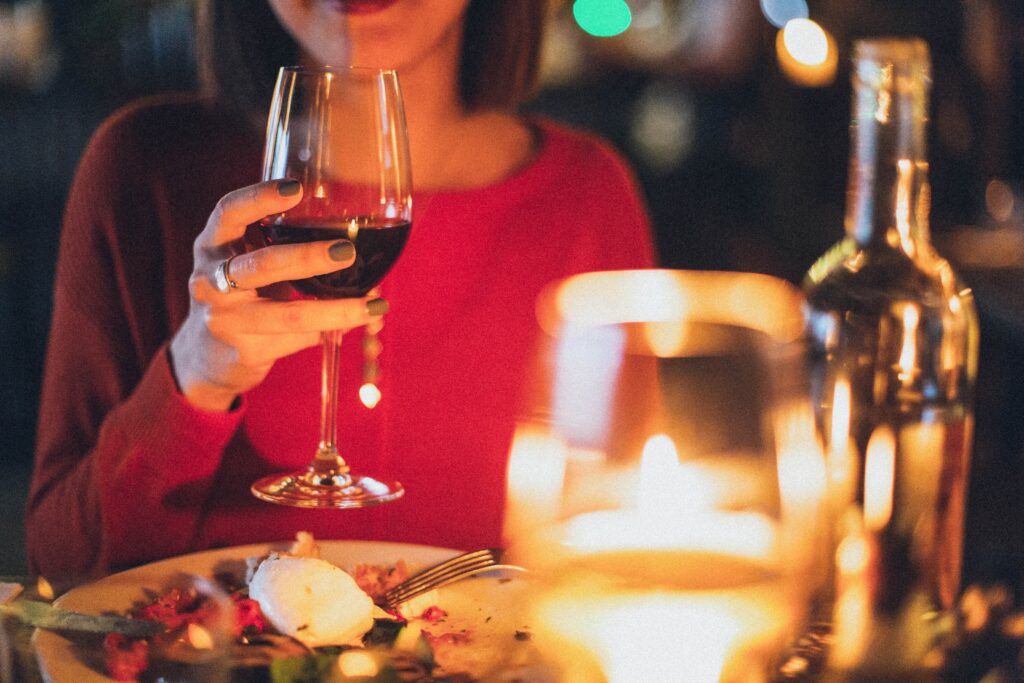10 things you shouldn’t do before going to sleep

Eat a hearty meal before going to bed

In the evening, having a hearty meal that is too rich in fat or protein is not recommended because it takes longer to digest.
There is then a risk of feeling discomfort such as bloating and gastric acid reflux. It is also advisable to avoid spicy dishes, which can cause heartburn. Ideally, you should eat your meal two to three hours before going to bed: this allows you to digest most foods.
Snacking before going to bed is also not recommended, prefer a large glass of water. Certain foods are to be preferred, and in particular those which contain melatonin, the hormone involved in the sleep process, and tryptophan, an amino acid at the origin of serotonin, whose effects on sleep have been proven 1 . It is found, for example, in kiwi 2 , peanuts, cherries, milk or fatty fish rich in omega-3.
| Sources 1. E.L Saino, K Pulkki, S. N Young. L-Tryptophan: biochemical, nutritional and pharmacological aspects. Amino Acids. 1996;10:21-47 2. Lin HH, Tsai PS, Fang SC, Liu JF. Effect of kiwifruit consumption on sleep quality in adults with sleep problems. Asia Pac J Clin Nutr. 2011;20(2):169-74 |
Practicing an intense sports activity in the evening

The practice of a sports activity at the end of the day is not discouraged, but if it proves to be too intense, it can disturb sleep.
Indeed, it increases body temperature, which delays falling asleep 1 , and stimulates the production of adrenaline 2 , thus accentuating the state of alertness and wakefulness.
On the other hand, an exercise practiced on a regular basis and away from bedtime, makes it easier to fall asleep and makes sleep deeper.
| Sources 1. National Institute for Prevention and Health Education. Sleep well, live better. Ref: 421-096-B 2. Harber VJ, Sutton JR. Endorphins and exercise. Sports Med. 1984;1(2):154-71 |
Drink alcohol before bedtime

Although alcohol may be thought to make it easier to fall asleep, it significantly reduces the quality of sleep .
This is because drinking alcohol after dinner can skip the first cycle of sleep, known as calm wakefulness . During it, the brain is still active but the body relaxes.
Alcohol also causes regular awakenings due to adrenaline secretions, and disturbs sleep cycles because it blocks the entry of tryptophan into the brain.
In addition, since it dehydrates, it often happens that the person wakes up in the middle of the night to drink a glass of water. Sleep is therefore less regenerative and less restful.
Finally, it seems that alcohol is a diuretic 1 , which further disturbs sleep and aggravates sleep apnea 2 .
| Sources 1. Mahesh M Thakker, Rishi Sharma, Pradeep Sahota. Alcohol disrupts sleep homeostasis. Alcohol Journal. 2014. 2. National Institute for Prevention and Health Education. Sleep well, live better. Ref:421-096-B |
